

Maya Angelou
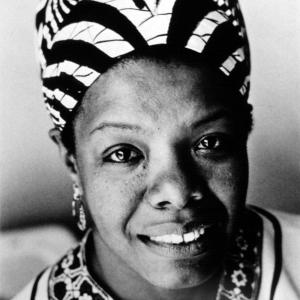
Poet, dancer, singer, activist, and scholar Maya Angelou was a world-famous author. She was best known for her unique and pioneering autobiographical writing style.
On April 4, 1928, Marguerite Ann Johnson, known to the world as Maya Angelou, was born in St. Louis, Missouri. Due to her parents’ tumultuous marriage and subsequent divorce, Angelou went to live with her paternal grandmother in Stamps, Arkansas at an early age. Her older brother, Bailey, gave Angelou her nickname “Maya.”
Returning to her mother’s care briefly at the age of seven, Angelou was raped by her mother’s boyfriend. He was later jailed and then killed when released from jail. Believing that her confession of the trauma had a hand in the man’s death, Angelou became mute for six years. During her mutism and into her teens, she again lived with her grandmother in Arkansas.
Angelou’s interest in the written word and the English language was evident from an early age. Throughout her childhood, she wrote essays, poetry, and kept a journal. When she returned to Arkansas, she took an interest in poetry and memorized works by Shakespeare and Poe.
Prior to the start of World War II, Angelou moved back in with her mother, who at this time was living in Oakland, California. She attended George Washington High School and took dance and drama courses at the California Labor School.
When war broke out, Angelou applied to join the Women’s Army Corps. However, her application was rejected because of her involvement in the California Labor School, which was said to have Communist ties. Determined to gain employment, despite being only 15 years old, she decided to apply for the position of a streetcar conductor. Many men had left their jobs to join the services, enabling women to fill them. However, Angelou was barred from applying at first because of her race. But she was undeterred. Every day for three weeks, she requested a job application, but was denied. Finally, the company relented and handed her an application. Because she was under the legal working age, she wrote that she was 19. She was accepted for the position and became the first African American woman to work as a streetcar conductor in San Francisco. Angelou was employed for a semester but then decided to return to school. She graduated from Mission High School in the summer of 1944 and soon after gave birth to her only child, Clyde Bailey (Guy) Johnson.
After graduation, Angelou undertook a series of odd jobs to support herself and her son. In 1949, she married Tosh Angelos, an electrician in the US Navy. She adopted a form of his surname and kept it throughout her life, though the marriage ended in divorce in 1952.
Angelou was also noted for her talents as a singer and dancer, particularly in the calypso and cabaret styles. In the 1950s, she performed professionally in the US, Europe, and northern Africa, and sold albums of her recordings.
In 1950, African American writers in New York City formed the Harlem Writers Guild to nurture and support the publication of Black authors. Angelou joined the Guild in 1959. She also became active in the Civil Rights Movement and served as the northern coordinator of the Southern Christian Leadership Conference, a prominent African American advocacy organization
In 1969, Angelou published I Know Why the Caged Bird Sings , an autobiography of her early life. Her tale of personal strength amid childhood trauma and racism resonated with readers and was nominated for the National Book Award. Many schools sought to ban the book for its frank depiction of sexual abuse, but it is credited with helping other abuse survivors tell their stories. I Know Why the Caged Bird Sings has been translated into numerous languages and has sold over a million copies worldwide. Angelou eventually published six more autobiographies, culminating in 2013’s Mom & Me & Mom.
She wrote numerous poetry volumes, such as the Pulitzer Prize-nominated Just Give me a Drink of Water 'fore I Diiie (1971), as well as several essay collections. She also recorded spoken albums of her poetry, including “On the Pulse of the Morning,” for which she won a Grammy for Best Spoken Word Album. The poem was originally written for and delivered at President Bill Clinton’s inauguration in 1993. She also won a Grammy in 1995, and again in 2002, for her spoken albums of poetry.
Angelou carried out a wide variety of activities on stage and screen as a writer, actor, director, and producer. In 1972, she became the first African American woman to have her screen play turned into a film with the production of Georgia, Georgia . Angelou earned a Tony nomination in 1973 for her supporting role in Jerome Kitty’s play Look Away , and portrayed Kunta Kinte’s grandmother in the television miniseries Roots in 1977.
She was recognized by many organizations both nationally and internationally for her contributions to literature. In 1981, Wake Forest University offered Angelou the Reynolds Professorship of American Studies. President Clinton awarded Angelou the National Medal of Arts in 2000. In 2012, she was a member of the inaugural class inducted into the Wake Forest University Writers Hall of Fame. The following year, she received the National Book Foundation’s Literarian Award for outstanding service to the American literary community. Angelou also gave many commencement speeches and was awarded more than 30 honorary degrees in her lifetime.
Angelou died on May 28, 2014. Several memorials were held in her honor, including ones at Wake Forest University and Glide Memorial Church in San Francisco. To honor her legacy, the US Postal Service issued a stamp with her likeness on it in 2015. (The US Postal Service mistakenly included a quote on the stamp that has long been associated with Angelou but was actually first written by Joan Walsh Anglund .)
In 2010, President Barack Obama awarded Angelou the Presidential Medal of Freedom, the country’s highest civilian honor. It was a fitting recognition for Angelou’s remarkable and inspiring career in the arts.
Angelou, Maya. I Know Why the Caged Bird Sings. (New York: Random House, 1969). Angelou, Maya. Maya Angelou: A Glorious Celebration. (New York: Doubleday, 2008).
“Poet – Maya Angelou.” Academy of American Poets. Accessed August 8, 2017. https://www.poets.org/poetsorg/poet/maya-angelou
Brown, Emma. “Maya Angelou, Writer and Poet, dies at age 86.” The Washington Post, May 28, 2014. Accessed August 8, 2017. https://www.washingtonpost.com/entertainment/maya-angelou-writer-and-poet-dies-at-age-86/2014/05/28/2948ef5e-c5da-11df-94e1-c5afa35a9e59_story.html?utm_term=.408fffb9a82c
Brown , DeNeen L. “Maya Angelou honored for her first job as a street car conductor in San Francisco.” The Washington Post, March 12, 2014. Accessed August 8, 2017. https://www.washingtonpost.com/blogs/local/wp/2014/03/12/maya-angelou-honored-for-her-first-job-as-a-street-car-conductor-in-san-francisco/?tid=a_inl&utm_term=.92c836957f2f
“About Harlem Writers Guild.” Harlem Writers Guild. Accessed August 10, 2017. http://theharlemwritersguild.org/about.html
Moore, Lucinda. “Growing Up Maya Angelou.” Smithsonian.com, April 2013. Accessed August 8, 2017. http://www.smithsonianmag.com/arts-culture/growing-up-maya-angelou-79582387/
Nixon, Ron. “Postal Service Won’t Reissue Maya Angelou Stamp.” The New York Times, April 8, 2017. Accessed August 8, 2017. https://www.nytimes.com/2015/04/09/us/postal-service-wont-reissue-maya-angelou-stamp.html
“History.” Southern Christian Leadership Conference. Accessed August 10, 2017. http://nationalsclc.org/about-us/history/
Thursby, Jacqueline S. "Angelou, Maya (4 Apr. 1928–28 May 2014), writer, performer, and activist." American National Biography. 29 Nov. 2018; Accessed 7 Dec. 2021. https://doi.org/10.1093/anb/9780198606697.013.00700
“Dr. Maya Angelou.” National Book Foundation. Accessed December 7, 2021. https://www.nationalbook.org/people/dr-maya-angelou/#fullBio
MLA - Spring, Kelly. “Maya Angelou." National Women's History Museum. National Women's History Museum, 2017. Date accessed.
Chicago - Spring, Kelly. "Maya Angelou." National Women's History Museum. 2017. www.womenshistory.org/education-resources/biographies/maya-angelou.
Photo Credit: MAYA ANGELOU, circa 1976. Courtesy: CSU Archives / Everett Collection.
Angelou, Maya. Just Give me a Drink of Water ‘fore I Diiie . (New York: Bantam, 1976).
Angelou, Maya. Mom & Me & Mom . (London: Virago, 2013).
“THE INAUGURATION; Maya Angelou: 'On the Pulse of Morning’.” The New York Times, January 21 1993. http://www.nytimes.com/1993/01/21/us/the-inauguration-maya-angelou-on-the-pulse-of-morning.html Classroom Posters:
- Maya Angelou Classroom Poster (11x17 in) | Maya Angelou Classroom Poster (24x36 in)
Related Biographies

Stacey Abrams

Abigail Smith Adams

Jane Addams

Toshiko Akiyoshi
Related background, “when we sing, we announce our existence”: bernice johnson reagon and the american spiritual', mary church terrell , belva lockwood and the precedents she set for women’s rights, faith ringgold and her fabulous quilts.
Biography Online

Maya Angelou Biography
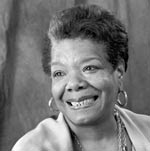
You may write me down in history With your bitter, twisted lies, You may trod me in the very dirt But still, like dust, I’ll rise.
– Maya Angelou from ‘Still I rise’
Short biography Maya Angelou
Maya Angelou (original name Marguerite Johnson) was born April 4, 1928, in St Louis, Missouri.
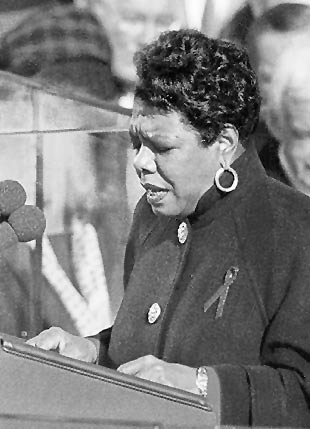
Despite the inequities of her life as a child, Maya Angelou was able to provide a positive message of humanity and hope. Maya Angelou said that “The honorary duty of a human being is to love.”
“ Love arrives and in its train come ecstasies old memories of pleasure ancient histories of pain. Yet if we are bold, love strikes away the chains of fear from our souls.”
From: Touched By An Angel
Maya Angelou married a South African freedom fighter and for a time lived in Cairo where she was the editor of the Arab Observer. However, in the 1960s she returned to America and played a role in the civil rights movement. She was asked to work on behalf of Presidents Carter (National Commission on the observance of International Women’s Year) and President Ford (American Revolutionary Bicentennial Advisory Council).
As well as being a poet and writer, Maya Angelou had a productive career in TV and film. She wrote several prize-winning documentaries such as Afro-Americans in the Arts .
The popularity of Maya Angelou has in large part been due to her ability to write about the many experiences of life with a vivid and engaging style that absorbs the reader. As Sidonie Ann Smith states from Southern Humanities Review:
“Her genius as a writer is her ability to recapture the texture of the way of life in the texture of its idioms, its idiosyncratic vocabulary and especially in its process of image-making.”
In the 1960s, she was active in the civil rights movement, coming into contact with both Malcolm X and Martin Luther King . She was the northern leader of the Southern Christian Leadership Conference (SCLC). With Malcolm X, she helped to form the new Organization of African American Unity. She was devastated after both King and Malcolm X were assassinated in the late 1960s.
In the late 1960s , she published an influential autobiography, which spoke of her experiences growing up: I Know Why the Caged Bird Sings (1969). It is considered an important work for giving a personal voice to African American women. She went on to write seven autobiographical works.
She has also been active in film and television. Dr. Angelou wrote the Pulitzer-winning screenplay and composed the score for the 1972 film Georgia, Georgia.
After reciting a poem ‘ On the Pulse of the Morning’ at Bill Clinton’s inauguration, she became one of the best known African-American authors, and sales increased significantly. Her works have also received criticism for depicting sexually explicit scenes and violence. However, her books remain on many school syllabuses.
Dr. Angelou received over 50 honorary degrees and was for a time Reynolds Professor of American Studies at Wake Forest University.
Dr. Maya Angelou passed quietly in her home on May 28, 2014.
Citation: Pettinger, Tejvan . “ Biography of Maya Angelou ”, Oxford, UK. www.biographyonline.net 26 Jan. 2011. Updated 26 June 2017.
I Know Why the Caged Bird Sings – Maya Angelou
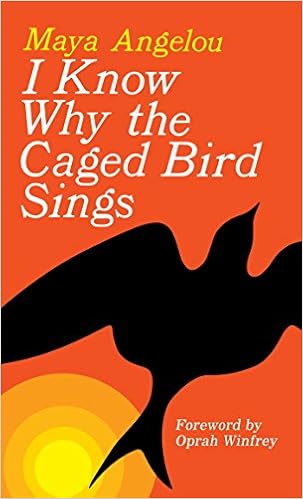
I Know Why the Caged Bird Sings – Maya Angelou at Amazon
Related biographies
- Oprah Winfrey
Related pages
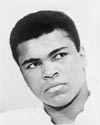
Search Results
- Facebook icon
- Twitter icon
- YouTube logo
- Linkedin icon
- Instagram icon
THE DIGITAL REPOSITORY FOR THE BLACK EXPERIENCE
- Maker Directory
- Browse Categories
- Visual Archive
- Digital Library
- Newsletter Archive
- The HistoryMakers Digital Archive
- The ScienceMakers Digital Archive
- Higher Education
- Public Libraries
- Memberships
- Nominate a HistoryMaker
- Become a Bureau
- PBS-TV Programs
- Public Programs
- 20@2020 Events
- Special Collections
Maya Angelou
Maker interview details.

- August 31, 2010
- Category: ArtMakers
- Occupation(s): Poet
- Born: April 4, 1928
- Birth Location: St. Louis, Missouri
- Favorite Color: All Colors
- Favorite Food: Chili
- Favorite Time of Year: All Seasons
- Favorite Vacation Spot: Home
Favorite Quote
"Sister, mama don't care what these people say that you must be an idiot or stupid or a moron cause you can't talk. Sister, mama know when you and the good Lord get ready, you're going to be a teacher. Sister, you're going to teach all over the world."
Poet, author, and professor Maya Angelou was born as Marguerite Johnson on April 4, 1928 in St. Louis, Missouri, to Bailey and Vivian Baxter Johnson. Angelou’s older brother, Bailey Jr., nicknamed her “Maya” when they were children. When Angelou was three years old, her parents divorced and sent her and her brother to live with their grandmother in the harshly segregated Stamps, Arkansas. Angelou and her brother moved back and forth between Stamps and St. Louis throughout their formative years. During World War II, Angelou attended George Washington High School and San Francisco’s Labor School, dropping out for a short while to work as the first Black female streetcar conductor in San Francisco, but eventually graduating at the age of seventeen. Three weeks after her graduation, she gave birth to her only son. Around 1950, Angelou, then a calypso dancer, changed her name from Marguerite Johnson to the more theatrical Maya Angelou. From 1954 to 1955, Angelou toured Europe with a production of the opera Porgy and Bess, and three years later, she moved to New York City in order to concentrate on her writing career. Around the same time, she served as the Northern Coordinator for the Southern Christian Leadership Conference (SCLC) under Dr. Martin Luther King, Jr. In 1961, Angelou moved to Cairo, where she wrote for the weekly newspaper, "The Arab Observer", then to Ghana, where she taught at the University of Ghana's School of Music and Drama and worked as a feature editor for "The African Review". Angelou returned to the United States in 1964 to help Malcolm X build the Organization of African American Unity. Unfortunately, when Malcolm died, so too did the organization. In 1970, Angelou published her famed autobiography, I Know Why the Caged Bird Sings, for which she received a National Book Award nomination. This autobiography was followed by five other volumes, released in 1974, 1976, 1981, 1986, and 2002. Angelou’s first volume of poetry, "Just Give Me a Cool Drink of Water 'Fore I Diiie," was published in 1971, and nominated for the Pulitzer Prize the next year. In 1981, Angelou returned to the South, where she became the Reynolds Professor of American Studies at Wake Forest University in Winston-Salem, North Carolina. In 1993, she recited her poem "On the Pulse of Morning" at the inauguration of President Bill Clinton. The recipient of a Tony Award nomination for her role in the 1973 Broadway play Look Away, Angelou was granted three Grammy Awards for her spoken word albums and an Emmy for her supporting role in the television miniseries "Roots." In 1998, Angelou was inducted into the National Women's Hall of Fame. She was the recipient of the National Medal of Arts in 2000 and the Lincoln Medal in 2008. Later in life, Angelou divided her time between Winston-Salem, North Carolina, and Harlem, New York. She had one son, two grandsons, and two great-grandchildren. Maya Angelou passed away on May 28, 2014 at the age of 86.
- A2010_109_EAD.pdf
- A2010_109_EAC.pdf
- National Poetry Month
- Materials for Teachers
- Literary Seminars
- American Poets Magazine
Main navigation
- Academy of American Poets
User account menu

Search more than 3,000 biographies of contemporary and classic poets.
Page submenu block
- literary seminars
- materials for teachers
- poetry near you
Maya Angelou
Maya Angelou was born Marguerite Johnson in St. Louis, Missouri, on April 4, 1928. She grew up in St. Louis and Stamps, Arkansas. She was an author, poet, historian, songwriter, playwright, dancer, stage and screen producer, director, performer, singer, and civil rights activist. She was best known for her seven autobiographical books: Mom & Me & Mom (Random House, 2013); Letter to My Daughter (Random House, 2008); All God's Children Need Traveling Shoes (Random House, 1986); The Heart of a Woman (Random House, 1981); Singin' and Swingin' and Gettin' Merry Like Christmas (Random House, 1976); Gather Together in My Name (Random House, 1974); and I Know Why the Caged Bird Sings (Random House, 1969), which was nominated for the National Book Award.
Among her volumes of poetry are A Brave and Startling Truth (Random House, 1995); The Complete Collected Poems of Maya Angelou (Random House, 1994); Wouldn't Take Nothing for My Journey Now (Random House, 1993); I Shall Not Be Moved (Random House, 1990); Shaker, Why Don't You Sing? (Random House, 1983); Oh Pray My Wings Are Gonna Fit Me Well (Random House, 1975); and Just Give Me a Cool Drink of Water 'fore I Diiie (Random House, 1971), which was nominated for the Pulitzer Prize.
In 1959, at the request of Dr. Martin Luther King Jr., Angelou became the northern coordinator for the Southern Christian Leadership Conference. From 1961 to 1962 she was associate editor of The Arab Observer in Cairo, Egypt, the only English-language news weekly in the Middle East, and from 1964 to 1966 she was feature editor of the African Review in Accra, Ghana. She returned to the United States in 1974 and was appointed by Gerald Ford to the Bicentennial Commission and later by Jimmy Carter to the Commission for International Woman of the Year. She accepted a lifetime appointment in 1982 as Reynolds Professor of American Studies at Wake Forest University in Winston-Salem, North Carolina. In 1993, Angelou wrote and delivered a poem, "On The Pulse of the Morning," at the inauguration for President Bill Clinton at his request. In 2000, she received the National Medal of Arts, and in 2010 she was awarded the Presidential Medal of Freedom by President Barack Obama.
The first black woman director in Hollywood, Angelou wrote, produced, directed, and starred in productions for stage, film, and television. In 1971, she wrote the original screenplay and musical score for the film Georgia, Georgia , and was both author and executive producer of a five-part television miniseries "Three Way Choice." She also wrote and produced several prize-winning documentaries, including "Afro-Americans in the Arts," a PBS special for which she received the Golden Eagle Award. Angelou was twice nominated for a Tony award for acting: once for her Broadway debut in Look Away (1973), and again for her performance in Roots (1977).
Angelou died on May 28, 2014, in Winston-Salem, North Carolina, where she had served as Reynolds Professor of American Studies at Wake Forest University since 1982. She was eighty-six.
Related Poets
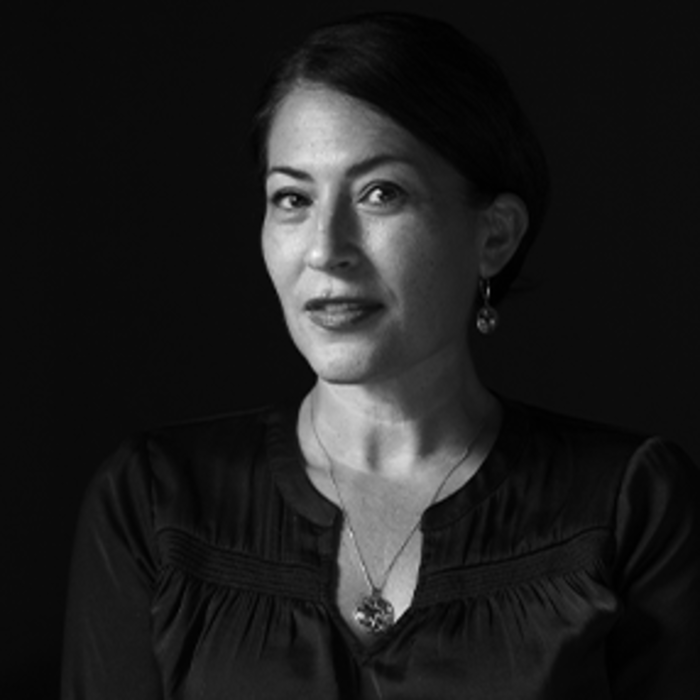
Ada Limón is the author of The Carrying (Milkweed Editions, 2018) and Bright Dead Things (Milkweed Editions, 2015), which was a finalist for the National Book Award.
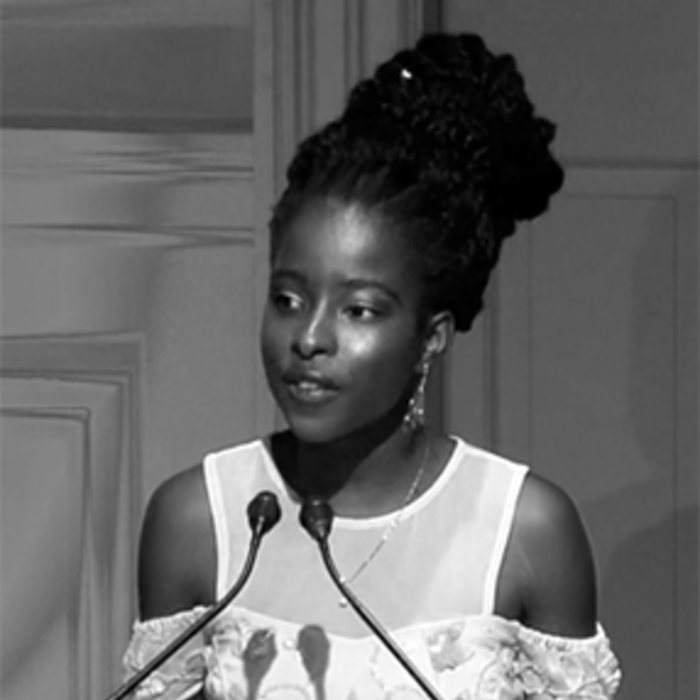
Amanda Gorman
The first-ever National Youth Poet Laureate, Amanda Gorman is the author of The One for Whom Food Is Not Enough (Penmanship Books, 2015).
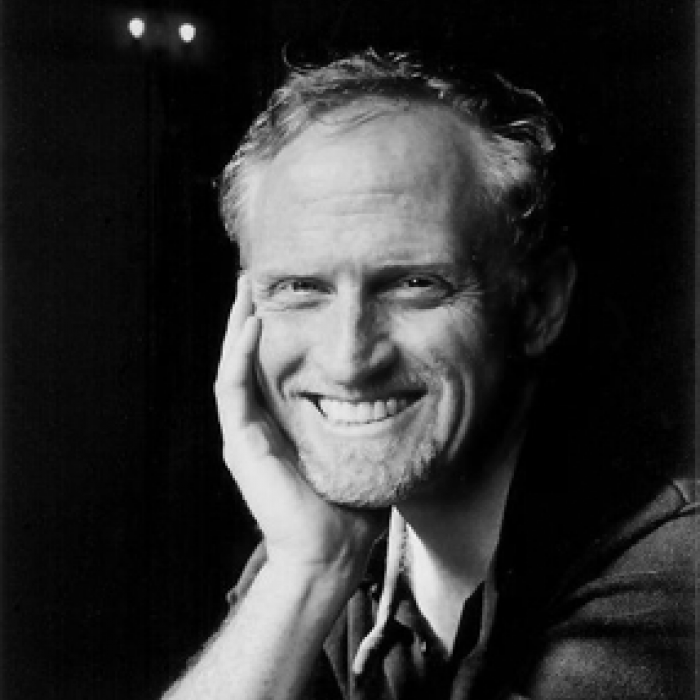
Campbell McGrath
Campbell McGrath is the author of ten collections of poetry, including XX: Poems for the Twentieth Century , In The Kingdom of the Sea Monkeys , Shannon , and Seven Notebooks . His third book, Spring Comes to Chicago , won the Kingsley Tufts Poetry Award.
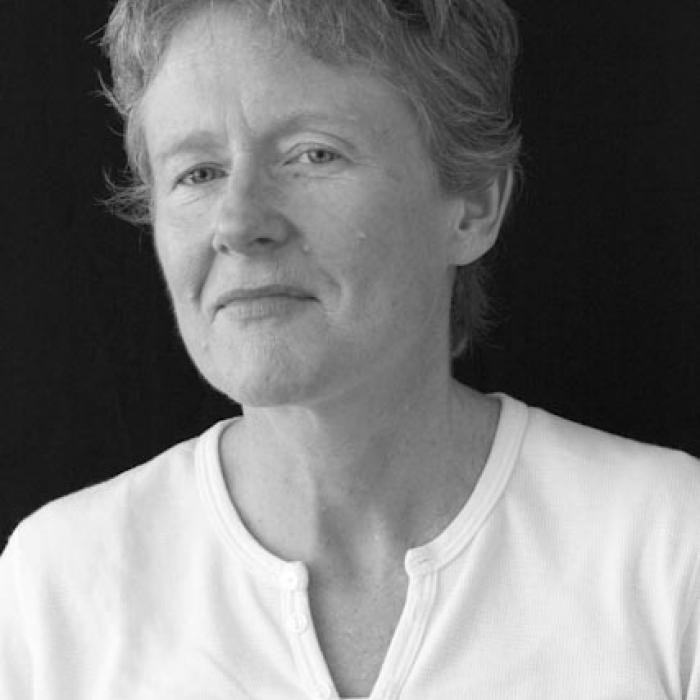
Suzanne Gardinier
Born in New Bedford, Massachusetts, on January 25, 1961, poet and essayist Suzanne Gardinier earned her BA at the University of Massachusetts Amher
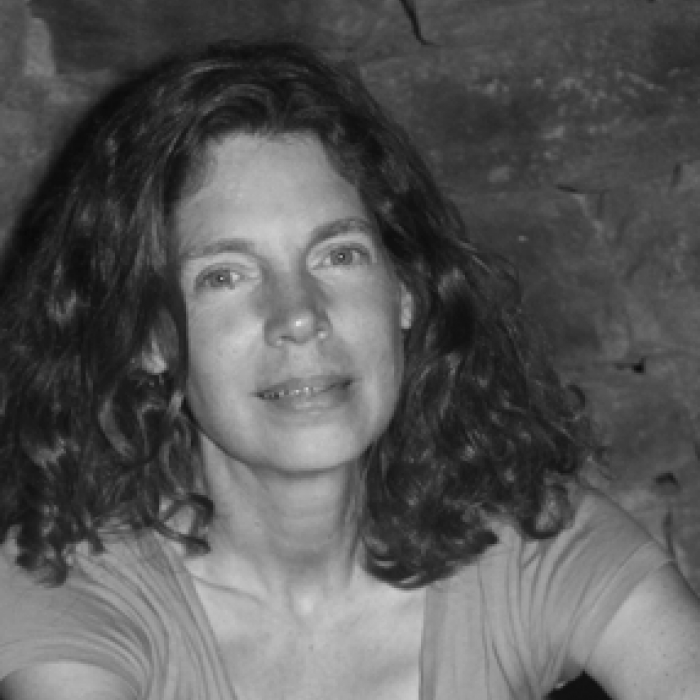
Jody Gladding
Born in 1955 in York, Pennsylvania, poet and translator Jody Gladding received her BA from Franklin & Marshall College in Lancaster, Pennsylva

Rachel Hadas
Born on November 8, 1948, Rachel Hadas is the author of numerous books of poetry, essays, and translations, including Halfway Down the Hall: New & Selected Poems (Wesleyan University Press, 1998), which was a finalist for the 1999 Lenore Marshall Poetry Prize.
Newsletter Sign Up
- Academy of American Poets Newsletter
- Academy of American Poets Educator Newsletter
- Teach This Poem
Poems & Poets

Maya Angelou

An acclaimed American poet, storyteller, activist, and autobiographer, Maya Angelou was born Marguerite Johnson in St. Louis, Missouri. Angelou had a broad career as a singer, dancer, actress, composer, and Hollywood’s first female black director, but became most famous as a writer, editor, essayist, playwright, and poet. As a civil rights activist, Angelou worked for Dr. Martin Luther King Jr. and Malcolm X. She was also an educator and served as the Reynolds professor of American Studies at Wake Forest University. By 1975, wrote Carol E. Neubauer in Southern Women Writers: The New Generation, Angelou was recognized “as a spokesperson for… all people who are committed to raising the moral standards of living in the United States.” She served on two presidential committees, for Gerald Ford in 1975 and for Jimmy Carter in 1977. In 2000, Angelou was awarded the National Medal of Arts by President Bill Clinton. In 2010, she was awarded the Presidential Medal of Freedom, the highest civilian honor in the U.S., by President Barack Obama. Angelou was awarded over 50 honorary degrees before her death. Angelou’s most famous work, I Know Why the Caged Bird Sings (1969), deals with her early years in Long Beach, St. Louis and Stamps, Arkansas, where she lived with her brother and paternal grandmother. In one of its most evocative (and controversial) moments , Angelou describes how she was first cuddled then raped by her mother’s boyfriend when she was just seven years old. When the man was murdered by her uncles for his crime, Angelou felt responsible, and stopped talking. Angelou remained mute for five years, but developed a love for language. She read Black authors like Langston Hughes , W. E. B. Du Bois , and Paul Lawrence Dunbar , as well as canonical works by William Shakespeare , Charles Dickens , and Edgar Allan Poe . When Angelou was twelve and a half, Mrs. Flowers, an educated African American woman, finally got her to speak again. Mrs. Flowers, as Angelou recalled in her children’s book Mrs. Flowers: A Moment of Friendship (1986) , emphasized the importance of the spoken word, explained the nature of and importance of education, and instilled in her a love of poetry. Angelou graduated at the top of her eighth-grade class. Angelou attended George Washington High School in San Francisco and took lessons in dance and drama on a scholarship at the California Labor School. When Angelou, just seventeen, graduated from high school and gave birth to a son, Guy, she began to work as the first African American and first female street car conductor in San Francisco. As she explained in Singin’ and Swingin’ and Gettin’ Merry like Christmas (1976), the third of her autobiographies , she also “worked as a shake dancer in night clubs, fry cook in hamburger joints, dinner cook in a Creole restaurant and once had a job in a mechanic’s shop, taking the paint off cars with my hands.” Angelou married a white ex-sailor, Tosh Angelos, in 1950. After they separated, Angelou continued her study of dance in New York City, returning to San Francisco to sing in the Purple Onion cabaret and garnering the attention of talent scouts. From 1954 to 1955, she was a member of the cast of a touring production of Porgy and Bess . During the late 1950s, Angelou sang in West Coast and Hawaiian nightclubs, before returning to New York to continue her stage career. Angelou joined the Harlem Writers Guild in the late 1950s and met James Baldwin and other important writers. It was during this time that Angelou had the opportunity to hear Dr. Martin Luther King speak. Inspired by his message, she decided to become a part of the struggle for civil rights. She was offered a position as the northern coordinator for Dr. King’s SCLC. Following her work for Dr. King, Angelou moved to Cairo with her son, and, in 1962, to Ghana in West Africa. She worked as a freelance writer and was a feature editor at the African Review. When Angelou returned to the United States in the mid-1960s, she was encouraged by author James Baldwin and Robert Loomis, an editor at Random House, to write an autobiography. Initially, Angelou declined the offers, but eventually changed her mind and wrote I Know Why the Caged Bird Sings. The book chronicles Angelou’s childhood and ends with the birth of her son. It won immediate success and was nominated for a National Book Award. I Know Why the Caged Bird Sings is the first of Angelou’s six autobiographies. It is widely taught in schools, though it has faced controversy over its portrayal of race, sexual abuse and violence. Angelou’s use of fiction-writing techniques like dialogue and plot in her autobiographies was innovative for its time and helped, in part, to complicate the genre’s relationship with truth and memory. Though her books are episodic and tightly-crafted, the events seldom follow a strict chronology and are arranged to emphasize themes. Other volumes include Gather Together in My Name (1974), which begins when Angelou is seventeen and a new mother; Singin’ and Swingin’ and Gettin’ Merry like Christmas, an account of her tour in Europe and Africa with Porgy and Bess; The Heart of a Woman (1981), a description of Angelou’s acting and writing career in New York and her work for the civil rights movement; and All God’s Children Need Traveling Shoes (1986), which recounts Angelou’s travels in West Africa and her decision to return, without her son, to America. It took Angelou fifteen years to write the final volume of her autobiography, A Song Flung up to Heaven (2002). The book covers four years, from the time Angelou returned from Ghana in 1964 through the moment when she sat down at her mother’s table and began to write I Know Why the Caged Bird Sings in 1968. Angelou hesitated so long to start the book and took so long to finish it, she told Knight Ridder/Tribune News Service interviewer Sherryl Connelly, because so many painful things happened to her, and to the entire African-American community, in those four years. “I didn’t know how to write it,” she said. “I didn’t see how the assassination of Malcolm [X], the Watts riot, the breakup of a love affair, then [the assassination of Dr.] Martin [Luther] King [Jr.], how I could get all that loose with something uplifting in it.” A Song Flung up to Heaven deals forthrightly with these events, and “the poignant beauty of Angelou’s writing enhances rather than masks the candor with which she addresses the racial crisis through which America was passing,” Wayne A. Holst wrote in Christian Century. Angelou was also a prolific and widely-read poet, and her poetry has often been lauded more for its depictions of Black beauty, the strength of women, and the human spirit; criticizing the Vietnam War; demanding social justice for all—than for its poetic virtue. Yet Just Give Me a Cool Drink of Water ‘fore I Diiie, which was published in 1971, was nominated for a Pulitzer Prize in 1972. According to Carol Neubauer in Southern Women Writers, “the first twenty poems describe the whole gamut of love, from the first moment of passionate discovery to the first suspicion of painful loss.” In other poems, “Angelou turns her attention to the lives of black people in America from the time of slavery to the rebellious 1960s. Her themes deal broadly with the painful anguish suffered by blacks forced into submission, with guilt over accepting too much, and with protest and basic survival.” As Angelou wrote her autobiographies and poems, she continued her career in film and television. She was the first Black woman to have a screenplay ( Georgia, Georgia ) produced in 1972. She was honored with a nomination for an Emmy award for her performance in Roots in 1977. In 1979, Angelou helped adapt her book, I Know Why the Caged Bird Sings, for a television movie of the same name. Angelou wrote the poetry for the 1993 film Poetic Justice and played the role of Aunt June. She also played Lelia Mae in the 1993 television film There Are No Children Here and appeared as Anna in the feature film How to Make an American Quilt in 1995.
One source of Angelou’s fame in the early 1990s was President Bill Clinton’s invitation to write and read an inaugural poem. Americans all across the country watched as she read “On the Pulse of Morning,” which begins “A Rock, a River, a Tree” and calls for peace, racial and religious harmony, and social justice for people of different origins, incomes, genders, and sexual orientations. It recalls the civil rights movement and Dr. Martin Luther King, Jr.’s famous “I have a dream” speech as it urges America to “Give birth again / To the Dream” of equality. Angelou challenged the new administration and all Americans to work together for progress: “Here, on the pulse of this new day, / You may have the grace to look up and out / And into your sister’s eyes, and into / Your brother’s face, your country /And say simply / Very simply / With hope—Good morning.” During the early 1990s, Angelou wrote several books for children, including Life Doesn’t Frighten Me (1993), which also featured the work of Jean-Michel Basquiat; My Painted House, My Friendly Chicken, and Me (1994), and Kofi and His Magic (1996), both collaborations with the photographer Margaret Courtney-Clark. Angelou’s poetry collections include The Complete Collected Poems of Maya Angelou (1994) and Phenomenal Woman (1995) , a collection of four poems that takes its title from a poem which originally appeared in Cosmopolitan magazine in 1978. The poem’s narrator describes the physical and spiritual characteristics and qualities that make her attractive. Angelou also wrote occasional poems, including A Brave Startling Truth (1995), which commemorated the founding of the United Nations, and Amazing Peace (2005), a poem written for the White House Christmas tree-lighting ceremony. Angelou published multiple collections of essays. Wouldn’t Take Nothing for My Journey Now (1993) contains declarations, complaints, memories, opinions, and advice on subjects ranging from faith to jealousy. Genevieve Stuttaford, writing in Publishers Weekly, described the essays as “quietly inspirational pieces.” Anne Whitehouse of the New York Times Book Review observed that the book would “appeal to readers in search of clear messages with easily digested meanings.” Even the Stars Look Lonesome (1997) is the sister volume, a book of “candid and lovingly crafted homilies” to “sensuality, beauty, and black women” said Donna Seaman in Booklist. Letter to my Daughter was published in 2008.
Angelou’s poetry often benefited from her performance of it, and during her lifetime Angelou recited her poems before spellbound crowds. Indeed, Angelou’s poetry can also be traced to African-American oral traditions like slave and work songs, especially in her use of personal narrative and emphasis on individual responses to hardship, oppression and loss. In addition to examining individual experience, Angelou’s poems often respond to matters like race and sex on a larger social and psychological scale. Describing her work to George Plimpton, Angelou said, “Once I got into it I realized I was following a tradition established by Frederick Douglass—the slave narrative—speaking in the first-person singular talking about the first-person plural, always saying I meaning ‘we.’ And what a responsibility. Trying to work with that form, the autobiographical mode, to change it, to make it bigger, richer, finer, and more inclusive in the twentieth century has been a great challenge for me.” In 2013 she was the recipient of the Literarian Award, an honorary National Book Award for contributions to the literary community. She died in 2014 at the age of 86.
- Black Arts Movement
- North America
- U.S., Southern
Poet Biographies
The Interesting Life of Maya Angelou
Maya Angelou was a writer, poet, and activist who defied categorization. Her life was a tapestry of triumphs and struggles, woven with words that captured the essence of human experience. She was known for her empowering verse, autobiographical works, and her role in advocating for women and African American writers.

Maya Angelou was an iconic writer known for her empowering verse , autobiographical works, and her role in advocating for women and African American writers. Angelou’s poetry was written in a direct, conversational tone that resonated with people from all backgrounds. The coveted poet, novelist, playwright, actor, director, and civil rights activist had many talents and won numerous accolades. Remarkably, she even won multiple Grammy awards and a Pulitzer Prize nomination.
About Maya Angelou
- 1 Life Facts
- 2 Interesting Facts
- 3 Famous Poems
- 4 Early Life
- 6 Education
- 7 Literary Career
- 8 Writing Career and Relationships
- 9 Influence from other Poets
- 10 Civil Rights Movement
- Maya Angelou was born on 4th April 1928, in St. Louis, Missouri.
- Her full birth name was Marguerite Anne Johnson.
- Throughout her life, she published seven autobiographies as well as several books of poetry .
- Her first autobiography , ‘I Know Why the Caged Bird Sings’ was published in 1969.
- Maya Angelou died in May 2014 after a period of bad health.
Interesting Facts
- In 1957 Maya Angelou recorded her first album, Miss Calypso.
- She performed on stage in the early 60s.
- In the mid-60s, she worked as an administrator at the University of Ghana and as a freelance writer for the Ghanaian Times.
- Angelou accepted the lifetime Reynolds Professorship of American Studies at Wake Forest University in North Carolina, where she was one of the only full-time African American professors.
- Angelou campaigned with Democratic candidates such as Hilary Clinton in the 1990s and early 2000s.
Famous Poems
- ‘ Still I Rise ‘ is a poem about confidence and empowerment. The speaker stands up to prejudice and preconceived notions of who she should be. She determines that she is valuable and deserving of respect. The refrain , “I rise” is used throughout, gaining intensity as the poem progresses. Towards the end, the speaker proudly states that she is leaving behind her own history and the “nights of terror and fear”. She is headed into the light, bringing with her the “gifts that [her] ancestors gave”.
- ‘ When Great Trees Fall ‘ is dedicated to loss and misery as integral parts of the human experience. Through the metaphor of a falling tree, the speaker talks about important losses that shake one’s life. In this case, the impact of the tree on the ground is felt throughout the forest. All the creatures shake and shudder. The lions “hunker down” and try to ride out the aftershocks. Maya Angelou’s speaker makes sure to address the fact that it doesn’t matter how large one is, physically or mentally, everyone is impacted by a loss. The poem ends optimistically as the speaker refers to the passing of the worst of these emotions and the possibility of peace blooming in one’s body. It might come slowly, but it brings comfort.
- ‘ Phenomenal Woman ‘ , like others on this list, is about empowering oneself. The speaker wants young women to go out into the world and “kick ass,” no matter who they are or what they look like. The speaker addresses the fact that she is “not cute or built to suit a fashion model’s size” but society’s norms do not matter when addressing one’s worth. She can carry herself confidently, walking into a room “as cool as you please” and stand up to a man. In fact, she adds, they “swarm” around her like bees. No matter what anyone else says to her, she knows that she’s a “woman / Phenomenally”.
- ‘ On Aging ‘ is a short poem that is addressed to those who might feel pity for an aging speaker. She asks them not to chatter at her, as she’s listening to herself She doesn’t want their sympathy, or for people to think that she is less than who she was in the past. In fact, she tells the listener directly that she is “the same person [she] was back then, a little less hair, a little less chin”. But, she knows very well that she is “lucky” that she can still “breathe in”.
- ‘ Equality ‘ addresses the themes of equality and discrimination. Through the use of metaphors and the striking refrain, “equality and I will be free” Maya Angelou emphasizes a universal longing for equality. The speaker asks the listener to stop covering their ears and their eyes and see clearly that the speaker, and all those like her, have been crying, asking for change. Eventually, the repetition of the refrain takes on the rhythm of a heartbeat or drumbeat. It is pounding over and over again, driving the speaker forward as she seeks out equal freedoms.
Explore more Maya Angelou poems .
Maya Angelou was born on 4th April 1928 in St. Louis, Missouri. Her full birth name was Marguerite Anne Johnson and her parents were Bailey Johnson, a dietician for the navy, and Vivian Johnson, a nurse. The name she would come to use, “Maya” came from her older brother, Bailey Jr. It is a slurred combination of “my-a” and “sister”.
When Angelou was still very young her parent’s marriage fell apart. They had never been happy together and when they separated, the young girl and her brother were sent, alone, by train, to live in Stamps, Arkansas with her paternal grandmother. Angelou’s grandmother had managed to make a good life for herself due to her ownership of a general store that prospered during the Great Depression.
Angelou certainly had a lot of problems during her childhood. When Angelou was eight years old her father brought the children back to live with their mother. It was here that she was sexually abused by her mother’s boyfriend. After building up enough courage, Angelou revealed what had been done to her, and he was jailed, but for only one day.
As soon as Angelou’s abuser was released he was murdered, likely by someone in the family. These traumatic events which occurred when she was still quite young, resulted in her becoming mute for five years. She would later explain that she blamed herself, and her voice , for the murder of her abuser. It is now thought that this time period was when she developed a true love for reading.
Maya Angelou was an African American poet, with her ancestry and heritage running firmly throughout her writing. In 2008, Maya took a DNA test , which revealed her ancestry: 55% of her ancestors came from West Africa while 45% came from the Congo-Angola region.
During the years of World War II, Angelou attended California Labor School, after studying at George Washington High School, and when she was 16 she became the first black female cable car conductor in San Francisco. Angelou gave birth to her first child, Clyde, one year later. Despite being clearly talented intellectually, due to her life circumstances, Angelou never attended college and instead dived straight into the world of work.
Literary Career
In the early 1950s, Angelou married Tosh Angelos who was an electrician and aspiring musician. It was also during this time period that she began taking dance classes. She performed at a number of different venues throughout San Francisco and made a name for herself as a cabaret dancer. She and her husband would later move to New York City where Angelou would study dancing styles from Africa, returning to San Francisco a year later. Her marriage was relatively short-lived with the couple divorcing in 1954.
The following years of the late 1950s saw Angelou touring throughout Europe with a production of an opera titled, Porgy and Bess. In 1957 she recorded her first album, Miss Calypso. The end of the decade saw her return to New York to focus on her writing career. While there she joined the Harlem Writers Guild and was published for the first time. She would go on to meet Martin Luther King Jr. and organize the Southern Christian Leadership Conference.
While she was spending more time on her writing, Angelou was still dancing. She performed on stage in the early 60s and then moved to Cairo where she worked as an associate editor of The Arab Observer. In the mid-60s, she worked as an administrator at the University of Ghana and as a freelance writer for the Ghanaian Times. She returned to America in 1967 and spent time writing plays. Her first autobiography, I Know Why the Caged Bird Sings, which became one of her most popular works, was published in 1969. It was the piece that brought her the recognition she had been searching for.
Writing Career and Relationships
In the later years of her life, her work in the film Georgia, Georgia, was filmed by a Swedish company, and became the first African American woman to write a screenplay. It was released in 1972. Angelou continued to work in all of her areas of interest. The writer also continued crafting articles, short stories , poetry, and autobiographical books—the second of which was published in 1974 and was titled, Gather Together in My Name. She also appeared in the television program, Roots. Angelou’s second marriage, to Paul du Feu, ended in 1983, a few years after she returned to the southern United States.
She also had close ties to high-ranking members of government, being appointed to the Bicentennial Commission by President Gerald Ford, and later selected by President Jimmy Carter to be on the National Commission on the Observance of International Women’s Year.
It was in Winston-Salem, North Carolina, at Wake Forest University, that she accepted the lifetime Reynolds Professorship of American Studies. She was one of the only full-time African American professors on staff at the university. At this point in her life, Angelou was finally and fully recognized as an outstanding writer, in all mediums. She toured around the United States giving lectures from the 1990s until she was in her eighties.
One event of note in her later life was the 1993 recitation of, ‘On the Pulse of Morning’ at the inauguration of President Bill Clinton. The recording of the poem actually got nominated for the ‘ Best Spoken Word Album’ at the 1993 Grammy Awards ceremony. She took home her first Grammy win that year, and secured her second in 1995 with her poem ‘Phenomenal Woman’. She was the first poet to make such an address since Robert Frost.
1993 continued to be an excellent year for Angelou, as well-respected literary critic Elsie B. Washington claimed that Maya was the “black women’s poet laureate”. This had a massive knock-on effect as the publishers of her works, Random House, saw a staggering 1200% increase in sales from the previous year. They achieved more sales just in January alone, than in all of 1992 combined. They even had to reprint over 400,000 copies of all her books just to match the incredible uptick in demand.
Angelou won many awards during her long, unique career. In 2013, she was given the Literarian Award, a National Book Award given to people who have contributed immensely to the literature. Along with this, in 2010, Angelou was awarded the Presidential Medal of Freedom by President Barack Obama.
With many strings to her bow, she even had a career as an actress, performing in plays and films alike. She earned a Tony Award nomination in 1973 for her performance in the Broadway play Look Away .
The late 1990s and early 2000s saw Angelou campaigning with democratic candidates such as Hilary Clinton and making her directorial debut with her first film, Down in the Delta. Maya Angelou died in May 2014 after a period of bad health. Throughout her life, she published seven autobiographies as well as several books of poetry. Her essays were compiled into three books and she is credited in a number of plays and television shows throughout her long career.
Angelou was an inspiration and role model to those around her, not only through her accomplishments but due to her as a person. It was widely reported that she and Oprah Winfrey became very close friends and acted as her mentor at times. Oprah has publicly shown her gratitude for the positive influence she had on her.

Influence from other Poets
Maya Angelou was notably influenced by writers and activists such as James Baldwin, Langston Hughes , and Martin Luther King Jr., as well as James Weldon Johnson and Zora Neale Hurston. She was also heavily inspired by older works by William Shakespeare , Edgar Allan Poe , and Charles Dickins .
Civil Rights Movement
Famously, Maya Angelou and Martin Luther King Jr. became very close friends. Angelous described their relationship like they were siblings. Angelou said he had a “small, beautiful speaking voice,”, which reminded her of her brother, and that when King sat down in her office, she “became a little girl again.” King Jr. ended up giving her the role of northern coordinator for the Southern Christian Leadership Conference. This was Angelou’s first step towards integrating into the Martin Luther King Jr. movement in the 1960s.
Maya Angelou is most famously known for her literary work as a poet. However, she was much more than that. She was a Poet, Singer, Dancer, Actress, Director, Novelist, Civil Rights activist, and Memoirist, just to name a few of the areas she delved into. She won and was nominated for a number of accolades and awards across these areas of interest. For example, she won two Grammys, was nominated for a Pulitzer Prize and was given the Presidential Medal for the Arts.
Maya Angelou went through a five-year spell of silence from the age of eight due to trauma. At the age of seven, Angelou was placed into the care of her mother. Sadly, her mother’s boyfriend raped her. After speaking out about the incident, the boyfriend was jailed for a short period of a day, then released. However, upon his release, he was murdered and Angelou believed that her speaking out had led to the loss of a man’s life, developing a self-hate for her voice . This resulted in her silencing her own voice for five whole years.
Maya Angelou came up with many iconic and very useful quotes. However, there is one that can resonate with anyone from any walk of life. She said, “Do the best you can until you know better. Then when you know better, do better.”
Maya Angelou had a role in the Civil Rights movement during the 20th century. Famously, she became a close friend of Malcolm X, working with him. She also played a vital role in the Southern Christian Leadership Conference in 1959, acting as the northern coordinator. This cemented her role in the Martin Luther King Jr. movement.
Maya Angelou is known for her autobiographical style of poetry in which she addresses many themes born from the struggles she herself had gone through during her life.
Throughout her interesting life, Maya Angelou lived in a number of different places. The most notable of these were; New York, St. Louis, San Francisco, and Stamps, Arkansas.
Home » Poet Biographies » Maya Angelou

About William Green
Experts in poetry.
Our work is created by a team of talented poetry experts, to provide an in-depth look into poetry, like no other.
Cite This Page
Green, William. "The Interesting Life of Maya Angelou". Poem Analysis , https://poemanalysis.com/maya-angelou/biography/ . Accessed 28 August 2024.

Help Center
Request an Analysis
(not a member? Join now)
Poem PDF Guides
PDF Learning Library
Beyond the Verse Podcast
Poetry Archives
Poetry Explained
Useful Links
Poem Explorer
Poem Generator
Poem Solutions Limited, International House, 36-38 Cornhill, London, EC3V 3NG, United Kingdom
(and discover the hidden secrets to understanding poetry)
Get PDFs to Help You Learn Poetry
250+ Reviews

- History & Society
- Science & Tech
- Biographies
- Animals & Nature
- Geography & Travel
- Arts & Culture
- Games & Quizzes
- On This Day
- One Good Fact
- New Articles
- Lifestyles & Social Issues
- Philosophy & Religion
- Politics, Law & Government
- World History
- Health & Medicine
- Browse Biographies
- Birds, Reptiles & Other Vertebrates
- Bugs, Mollusks & Other Invertebrates
- Environment
- Fossils & Geologic Time
- Entertainment & Pop Culture
- Sports & Recreation
- Visual Arts
- Demystified
- Image Galleries
- Infographics
- Top Questions
- Britannica Kids
- Saving Earth
- Space Next 50
- Student Center
- Introduction
- When did American literature begin?
- Who are some important authors of American literature?
- What are the periods of American literature?
- What were Maya Angelou’s jobs?

I Know Why the Caged Bird Sings
Our editors will review what you’ve submitted and determine whether to revise the article.
- Poetry Foundation - "Caged Bird"
- Literary Devices - I Know Why the Caged Bird Sings
- The New York Times - ‘I Know Why the Caged Bird Sings’ Review: A Life Too Simplified
- International Journal of Creative Research Thoughts - Injustice of racism in Maya Angelou’s I Know Why the Caged Bird Sings
- AllPoetry - "I Know Why The Caged Bird Sings"
- Table Of Contents
I Know Why the Caged Bird Sings , the first of seven autobiographical works by American writer Maya Angelou , published in 1969. The book chronicles her life from age 3 through age 16, recounting an unsettled and sometimes traumatic childhood that included rape and racism . It became one of the most widely read and taught books written by an African American woman.
The prologue describes an event in which Angelou, as a small child, is reciting a poem in church. Feeling ugly because she imagined in vain that the dress her grandmother made her would be so pretty that she would be seen as a beautiful white child, she forgets the poem and then wets her pants as she flees the church in embarrassment.
The story begins in 1931, as Maya, age three, and her elder brother, Bailey, are sent to Stamps, Arkansas , to live with their paternal grandmother, whom they call Momma, after their parents’ breakup. Momma owns the only store in the African American part of town. The children settle into life with Momma, helping her at the store and learning to read and do arithmetic. One night a former sheriff warns Momma to hide her disabled son because white men are planning revenge after a Black man “messed with” a white woman. Later a group of young white girls ridicule Momma while she stands, dignified and unmoving, outside the store. When the Great Depression hits, Momma keeps the store from going under by allowing customers to trade their rations for goods. One Christmas , Maya and Bailey receive gifts from their parents, whom they assumed to be dead. A year later their father, Daddy Bailey, arrives in a fancy car, and he takes Maya and Bailey to St. Louis to live with their mother, the beautiful Vivian.
At first they stay with Vivian’s mother and their uncles. At school, Maya and her brother are more advanced than the other students, and they are moved up a grade. Later the children move in with Vivian and her boyfriend, Mr. Freeman. Mr. Freeman begins molesting eight-year-old Maya, threatening to kill Bailey if she tells anyone. One day he rapes her, and she conceals her stained underwear under the mattress. When changing the linens, Bailey and Vivian find the garment and realize what happened. During Mr. Freeman’s trial, Maya lies when asked whether he touched her before the rape. Later Mr. Freeman is found dead, apparently having been beaten to death. Feeling guilty, Maya stops speaking to anyone except Bailey. After a few months of her silence, Maya and Bailey are sent back to Momma.
Maya is relieved to be back in Stamps, but she continues her silence. Eventually, the sophisticated Mrs. Bertha Flowers takes Maya under her wing, telling her that it is important to speak and giving her books to read aloud, and she begins talking again. At the age of 10, Maya is sent to work for a white woman, who calls her Mary rather than her name (Marguerite). Offended, Maya breaks some china in order to get fired. Later, Bailey is upset when he sees a movie starring Kay Francis because he thinks the actress looks just like Vivian, and he makes an unsuccessful attempt to return to his mother. Maya later makes her first friend, Louise Kendricks, a girl from school. During this time, Maya continues to encounter racism. When she develops cavities, Momma takes her to the white dentist who borrowed money from Momma during the Depression, but he refuses to treat the child, and they have to take a bus to the closest Black dentist. Bailey later sees the decaying corpse of a Black man pulled out of a pond, and a white man makes him help some Black men carry the body into the jail. After the incident, Momma decides to take Maya and Bailey back to their mother.
Maya and Bailey move with their mother to Oakland , California. There Maya attends a school in which she is one of only three Black students. When she is 14 years old, she is awarded a scholarship to the California Labor School, where she studies drama and dance. Vivian’s new husband, Daddy Clidell, becomes a genuine father figure to Maya.

Maya spends a summer in southern California with Daddy Bailey and his girlfriend, Dolores. Dolores and Maya do not get along. One day, Daddy Bailey takes Maya with him on a shopping trip to Mexico. Maya enjoys the excursion until she loses track of her father, who eventually returns to their car too drunk to drive. Although she has never driven before, Maya manages to drive them to the border, where she hits another car. At this point, Daddy Bailey wakes up, pacifies the other driver, and then drives the rest of the way home. Upon their return, Daddy Bailey and Dolores argue, and he walks out. Maya tries to console Dolores, but Dolores insults Vivian, leading Maya to slap her. Dolores then cuts Maya, who decides to run away. After spending a night in a junkyard, she awakens to find a community of Black, white, and Mexican runaways living there. She stays for a month and then returns to Vivian.
In the meantime, Bailey has become friends with “a group of slick street boys” and begun dating a white prostitute. At the age of 16 he leaves home, to his sister’s great sorrow. Maya browbeats the transit company into hiring her as the first female African American streetcar conductor in San Francisco . However, after spending one semester at the job, she returns to school. She later reads the lesbian novel The Well of Loneliness (1928) by Radclyffe Hall , and, misunderstanding what lesbianism is, she begins to fear that she might be a lesbian. Though Vivian tries to reassure her, she is not assuaged , and she determines to have sex with a boy. The encounter is unpleasant, and it results in Maya’s becoming pregnant. On Bailey’s advice, she keeps the news to herself and returns to school. After graduating from high school , Maya tells Vivian and Daddy Clidell, who are fully supportive. After Guy is born, Vivian assures Maya that she will be a good mother.
The book’s title came from the poem “Sympathy” by Paul Laurence Dunbar . Against the backdrop of racial tensions in the South , Angelou confronted the traumatic events of her childhood and explored the evolution of her strong identity as an African American woman. Her individual and cultural feelings of displacement were mediated through her passion for literature, which proved both healing and empowering.
After the 1968 assassination of Martin Luther King, Jr. , Angelou was inspired by a meeting with writer James Baldwin and cartoonist Jules Feiffer to write I Know Why the Caged Bird Sings as a way of dealing with the death of her friend and to draw attention to her own personal struggles with racism. The book was immediately popular and remained on best-seller lists for two years. Angelou cowrote the screenplay for the 1979 television movie version of the story, which starred Esther Rolle as Momma and Diahann Carroll as Vivian.
Maya Angelou: The Meaning Behind Her Poem "Still I Rise"

Poetry helped Angelou with her mutism as a child
Angelou grew up amid the degradations of the Jim Crow South . At the age of seven, she was raped by her mother's boyfriend, who was killed (presumably by family members seeking retribution) after she reported the crime. Following this trauma, Angelou sought refuge in mutism. But even when she wouldn't speak, Angelou studied and memorized poems, which gave her a unique understanding of language.
A desire to express her love for poetry by speaking it aloud helped draw Angelou out of her mutism. Yet she didn't forget the wide breadth of literature she'd taken in, which included works by Paul Laurence Dunbar, Langston Hughes , Countee Cullen , Emily Dickinson and William Shakespeare .
She penned her first verses when she was still in school, and in the late 1950s, Angelou joined the Harlem Writers Guild , where she interacted with James Baldwin and other writers. She authored plays, including one that was produced off-Broadway in 1960. While living in Egypt in the early 1960s, she edited an English-language newspaper and also spent time as a singer, dancer and actress.
However, Angelou admitted that writing poetry was always a challenge for her: "When I come close to saying what I want to, I’m over the moon. Even if it’s just six lines, I pull out the champagne. But until then, my goodness, those lines worry me like a mosquito in the ear."
The death of Martin Luther King Jr. propelled Angelou to throw herself into her writing
In 1968, things changed for the writer — she was preparing to join forces with Martin Luther King Jr. to bring attention to his Poor People’s Campaign and decided to take some time to celebrate her 40th birthday before accompanying King. As Angelou was getting ready for a party on her birthday, April 4, she learned King had been assassinated . Years passed before she commemorated her birthday again.
One way Angelou coped following King's death was to write. Her breakthrough memoir, I Know Why the Caged Bird Sings , was published in 1969. This was followed by additional memoirs, books of poetry and plays, including a dramatic musical production called And Still I Rise that was produced in Oakland, California, in 1976. In 1978, her poetry collection And Still I Rise was published. "Still I Rise" was included in this book
READ MORE: The Assassination of Martin Luther King Jr.
Angelou wanted to write a poem about 'defeat' and 'survival'
"Still I Rise" begins with, "You may write me down in history / With your bitter, twisted lies, / You may trod me in the very dirt / But still, like dust, I'll rise." Throughout the poem, the types of harrowing and unjust treatment that Black people in America are addressed alongside declarations of "I rise."
Angelou drew upon blues, gospel and spiritual songs as inspiration for the balladic patterns of the poem. She uses a "call and response" technique, references her sexuality and perhaps because she appreciated African American oral traditions, the power of the poem becomes even more evident when recited.
The ability to cope with adversity is a strong theme throughout "Still I Rise." "All my work, my life, everything is about survival," she once stated . "All my work is meant to say, 'You may encounter many defeats, but you must not be defeated.' In fact, the encountering may be the very experience which creates the vitality and the power to endure."
For Angelou, Black people in America had remained "intact enough to survive, and to do better than that — to thrive. And to do better than that — to thrive with some passion, some compassion, some humor and some style." In a 2009 interview , Angelou, whose great-grandmother was born into slavery, expressed her feeling that enslaved African Americans "couldn't have survived slavery without having hope that it would get better." This sentiment can be seen in the final lines of "Still I Rise": "I am the dream and the hope of the slave. / I rise / I rise / I rise."
READ MORE: Maya Angelou and 9 Other Best-Selling Black Authors
"Still I Rise" continues to resonate with new generations
Once, when asked what work could offer succor in difficult times, Angelou referred to "Still I Rise." She noted it was "a poem of mine that is very popular in the country. And a number of people use it. A lot of Black of people and a lot of white people use it."
Decades after it was published, people continue to reference "Still I Rise." In 1994, the United Negro College Fund , aiming for a more hopeful tone in its appeals, created a spot that featured Angelou reading part of "Still I Rise." Also that year, Nelson Mandela , having read Angelou's work while in prison during apartheid, recited "Still I Rise" when he was inaugurated as South Africa's president. A posthumous 1999 release from Tupac Shakur — who had cried in Angelou's arms when they were filming Poetic Justice together — was called Still I Rise , and among the tracks was a song with the same title. In 2017, Serena Williams issued a response that quoted some of Angelou's verses after a fellow tennis player made racist remarks about the child Williams was then expecting. That same year, a documentary about Angelou was called And Still I Rise . The film ends with Angelou's voice reciting the powerful poem — forever cementing its legacy.

Watch Next .css-16toot1:after{background-color:#262626;color:#fff;margin-left:1.8rem;margin-top:1.25rem;width:1.5rem;height:0.063rem;content:'';display:-webkit-box;display:-webkit-flex;display:-ms-flexbox;display:flex;}

Women’s History

Simone Biles

Kamala Harris
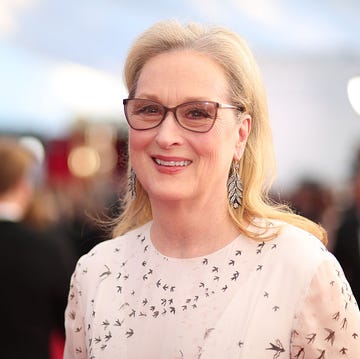
A Meryl Streep Quiz for Her Biggest Fans

What Is Vice President Kamala Harris’ Religion?

Marsha P. Johnson

Deb Haaland
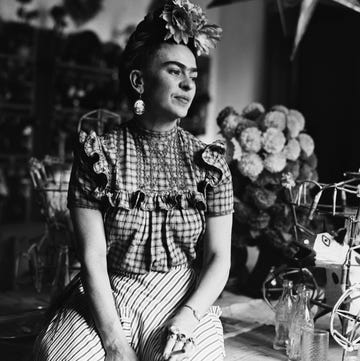
14 Hispanic Women Who Have Made History

5 Crowning Achievements of Maya Angelou
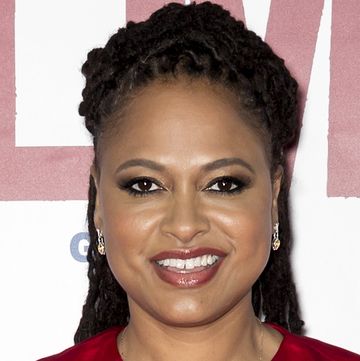
Ava DuVernay
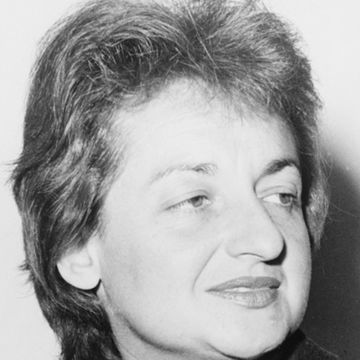
Betty Friedan
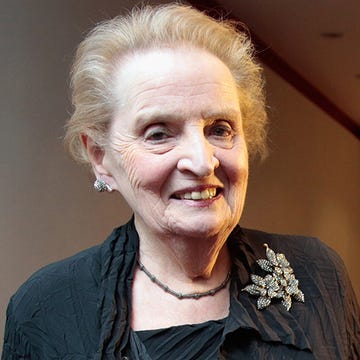
Madeleine Albright
Biography of Maya Angelou
Maya Angelou was an American writer and civil rights activist. Angelou is best known for her many books of poetry and autobiographies, as well as her active participation in the Civil Rights Movement, which involved working with Martin Luther King Jr. and Malcolm X.
Born Marguerite Annie Johnson in St. Louis, Missouri, Angelou's parents' divorce resulted in Angelou and her brother being sent to Stamps, Arkansas to live with their paternal grandmother and uncle. A contrast with the city life of her early years, Angelou's childhood was passed in Stamps’ close-knit black neighborhood under her grandmother’s strict moral and religious guidance. In 1936, Angelou was sent back to St. Louis to live with her mother. When Angelou was eight years old, her mother’s boyfriend raped her, leading to a one-day jail sentence. Angelou’s uncles murdered the man upon his release, and Angelou's fear and guilt over naming her assailant led to nearly five years of muteness. Angelou was sent back to Arkansas once again, where she sheltered herself from the world and found comfort in reading classic literature and studying at school. In 1940, Angelou moved to San Francisco with her mother. At age 16, she became the first black streetcar conductor in San Francisco. One year later, she graduated from high school and subsequently gave birth to her only child. While her mother embraced her newborn grandson, Angelou had to work hard to support him. She worked intermittently as a dancer, cook, waitress, and sex worker. A brief marriage and a prominent position as a dancer in a San Francisco club inspired her professional name, Maya Angelou.
In the 1950s, Angelou moved to New York City. The Harlem Writer’s Guild encouraged her budding literary talent, and she performed in several theatrical productions around the world. In 1966, she moved back to California and wrote scripts for television and film. She became one of the first black female screenwriters and directors in Hollywood. She was also a friend to both Martin Luther King Jr. and Malcolm X, and she worked tirelessly for the Civil Rights Movement. Inspired by her encounters with authors and editors, she eventually decided to turn the anecdotes of her colorful life into autobiographies.
In 1969, her first published autobiographical work, I Know Why the Caged Bird Sings , became a bestseller. Six subsequent autobiographies followed this early success, as well as several volumes of poetry. Her many talents earned her award nominations and wins in multiple fields, from a Pulitzer Prize nomination for poetry to five Grammy awards for her spoken-word albums. In 1981, Angelou was appointed professor of American studies at Wake Forest University. She also received many honorary degrees from universities over the course of her life.
In 1993, Angelou was invited to read her poem " On the Pulse of Morning " at the inauguration of President Bill Clinton. In 2011, President Barack Obama awarded her the Presidential Medal of Freedom.
Maya Angelou died at her home in Winston-Salem, North Carolina on May 28th, 2014. Angelou continues to be revered as a woman of many talents who—through her artistic, academic, and humanitarian endeavors—shed light on the issues of family, racism, sexism, and economic oppression.

Study Guides on Works by Maya Angelou
Africa (maya angelou poem) maya angelou.
Maya Angelou’s “Africa” was originally published in 1975 in her second volume of poetry, Oh Pray My Wings Are Gonna Fit Me Well. At the time of its publication, Angelou had already established herself as a prolific writer of both prose and verse....
- Study Guide
Alone (Maya Angelou poem) Maya Angelou
Maya Angelou’s “Alone” was originally published in 1975 in her second volume of verse, Oh Pray My Wings Are Gonna Fit Me Well. By the time of the book’s publication, Angelou had already established herself as a prolific writer of both prose and...
Caged Bird Maya Angelou
Often interpreted as an allegory for the experience of oppressed Black Americans, Maya Angelou's "Caged Bird" is a poem that compares the experience of a captive bird to a bird who lives freely. While the free bird soars through the sky and thinks...
Harlem Hopscotch Maya Angelou
Harlem Hopscotch is a poem written and recorded by famed civil rights leader Dr. Maya Angelou in her spoken-word collection The Poetry of Maya Angelou ( 1969). The poem was later published in her anthology collection, Just Give Me a Cool Drink of...
The Heart of a Woman Maya Angelou
The Heart of a Woman (1981) by Maya Angelou is the fourth book in her series of seven autobiographies. The Heart of a Woman tells the tale of Angelou as she leaves the world of show biz behind and moves to New York to become a writer and join the...
I Know Why the Caged Bird Sings Maya Angelou
I Know Why the Caged Bird Sings is the first of seven volumes of Maya Angelou's autobiography, which cover the years from the early 1930's, up until about 1970. Out of the seven, it is probably the most popular and critically acclaimed volume,...
- Lesson Plan
Maya Angelou: Poems Maya Angelou
A poet and civil rights activist, Maya Angelou published a number of autobiographies, essay collections, and poetry collections. It is due to her unique ability to reach out to a large subset of Americans with her poetry and prose that she won...
On the Pulse of Morning Maya Angelou
"On the Pulse of Morning" is a poem written and performed by Maya Angelou as part of the presidential inauguration of Bill Clinton in 1993. The poem is a call to recognize America’s history of slavery and racism, as well as the catastrophic...
Phenomenal Woman (Maya Angelou poem) Maya Angelou
Maya Angelou’s “Phenomenal Woman” was originally published in 1978 in her third volume of poetry, And Still I Rise. The poem was also featured that same year in Cosmopolitan magazine. At the time of its publication, Angelou was already well known...
Still I Rise Maya Angelou
“Still I Rise” is one of Maya Angelou’s most celebrated poems. Originally published in 1978 in Angelou’s third volume of verse, And Still I Rise, it shares its title with a play she wrote in 1976 and was written during a highly prolific time in...
Maya Angelou

- Occupation: Writer, Poet, Civil Rights Activist
- Born: April 4, 1928 in St. Louis, Missouri
- Died: May 28, 2014 in Winston-Salem, North Carolina
- Best known for: Her autobiography I Know Why the Caged Bird Sings

- I Know Why the Caged Bird Sings
- Gather Together in My Name
- Singin' and Swingin' and Gettin' Merry Like Christmas
- The Heart of a Woman
- All God's Children Need Traveling Shoes
- A Song Flung Up to Heaven
- Mom & Me & Mom
- On the Pulse of Morning
- Just Give Me a Cool Drink of Water 'fore I Die
- And Still I Rise
- Wouldn't Take Nothing for My Journey Now
- Even the Stars Look Lonesome
- I Know Why the Caged Bird Sings was the first nonfiction best-selling book by an African-American woman.
- She had one son, Guy Johnson, at the age of seventeen.
- In 1973, she was nominated for a Tony Award for her role in the play Look Away .
- She taught as a full-time professor at Wake Forest University.
- She recited her poem On the Pulse of Morning at the 1993 presidential inauguration of Bill Clinton .
- Listen to a recorded reading of this page:
| |
- Fundamentals NEW
- Biographies
- Compare Countries
- World Atlas
Maya Angelou
Introduction.

Angelou was born Marguerite Johnson on April 4, 1928, in Saint Louis, Missouri. Her parents separated when she was very young. For much of her childhood, she lived with her grandmother and brother in Stamps, Arkansas . Her brother gave her the nickname Maya.
In 1940 Maya went to live with her mother in San Francisco , California. There she finished high school and had a son. She worked at various jobs, including waitress, cook, and dancer. During this time she began to use the last name Angelou.
In the 1950s Angelou moved to New York City , where she developed her many talents. She studied dance with the famous modern dancer Martha Graham . She wrote and sang songs, some of which she recorded. She earned a role in the opera Porgy and Bess , and she went on an international tour with the show. She joined the Harlem Writers’ Guild, a group that encouraged her to write.
In the early 1960s Angelou lived in Egypt and Ghana . She worked as a writer and an editor for foreign publications. After moving back to the United States , she was active in the civil rights movement .
In the 1960s and ’70s Angelou wrote television and movie screenplays. She also acted in the TV series Roots (1977). In 1981 Angelou became a professor at Wake Forest University in North Carolina . During the 1990s she acted in movies and also directed a film, Down in the Delta (1998).
Throughout her life, Angelou wrote poetry and stories based on her experiences. Her first autobiographical book, I Know Why the Caged Bird Sings , was published in 1970. Over the next several decades, she published many other autobiographies and collections of poetry. She also wrote children’s books.
Bill Clinton asked Angelou to write a poem for his inauguration as president in 1993. Her reading of the poem, called “On the Pulse of Morning,” made her a celebrity. In 2011 President Barack Obama gave Angelou the Presidential Medal of Freedom. That award is the country’s highest nonmilitary honor. Angelou died on May 28, 2014, in Winston-Salem, North Carolina. In 2022 Angelou became the first Black woman to be featured on the U.S. quarter.
It’s here: the NEW Britannica Kids website!
We’ve been busy, working hard to bring you new features and an updated design. We hope you and your family enjoy the NEW Britannica Kids. Take a minute to check out all the enhancements!
- The same safe and trusted content for explorers of all ages.
- Accessible across all of today's devices: phones, tablets, and desktops.
- Improved homework resources designed to support a variety of curriculum subjects and standards.
- A new, third level of content, designed specially to meet the advanced needs of the sophisticated scholar.
- And so much more!
Want to see it in action?
Start a free trial
To share with more than one person, separate addresses with a comma
Choose a language from the menu above to view a computer-translated version of this page. Please note: Text within images is not translated, some features may not work properly after translation, and the translation may not accurately convey the intended meaning. Britannica does not review the converted text.
After translating an article, all tools except font up/font down will be disabled. To re-enable the tools or to convert back to English, click "view original" on the Google Translate toolbar.
- Privacy Notice
- Terms of Use
Maya Angelou
A short biography of maya angelou, maya angelou’s writing style, general characteristic of maya angelou’s style, style of poetry.
She used her poetry to encourage black people to protest against the government. The government has banned the teaching of Black Secular speech in school. Moreover, in her poetry, she also showed racism in her poetry that is still prevalent in America and protested against them. Maya Angelou has been considered as the poet laureate of black women. Her poems are regarded as the anthems of African Americans.
Maya Angelou’s Writing Style in Prose
Through her prose works, Angelou slows her readers to peer into her personal life. She describes her efforts to raise her son, Guy Johnson, in her book Singin’ and Swingin. She talks about her determination to raise him by working as a shake dancer in nightclubs, dinner cook, fry cook, and also had worked in a mechanic’s shop. She also gives details about her life as a prostitute. An intimate outlook of Angelou’s experiences is provided to the readers through her frank and conversational tone.
Beside I Know Why Caged Bird Sings, she also wrote numerous other novels. In this novel, she narrates her account of life from age one to seventeen. Her second autobiography/novel Gather Together in My Name was published in 1974 is the narration of her account of experiences as a mother with her son. The third and fourth book, Singin’ and Swingin’ and Getting Merry Like Christmas , were published in 1976 and account for four of her experiences as a dancer. In this book, she also narrates her traveling experience with Porgy and Bess.
Works Of Maya Angelou

COMMENTS
Maya Angelou (born April 4, 1928, St. Louis, Missouri, U.S.—died May 28, 2014, Winston-Salem, North Carolina) was an American poet, memoirist, and actress whose several volumes of autobiography explore the themes of economic, racial, and sexual oppression. Although born in St. Louis, Angelou spent much of her childhood in the care of her ...
Poet, dancer, singer, activist, and scholar Maya Angelou was a world-famous author. She was best known for her unique and pioneering autobiographical writing style. On April 4, 1928, Marguerite Ann Johnson, known to the world as Maya Angelou, was born in St. Louis, Missouri. Due to her parents' tumultuous marriage and subsequent divorce ...
A multitalented legendary figure, Maya Angelou was a poet, groundbreaking author, actor, and civil rights activist best known for writing her 1969 memoir 'I Know Why the Caged Bird Sings.'
Maya Angelou (/ ˈ æ n dʒ ə l oʊ / ⓘ AN-jə-loh; [1] [2] born Marguerite Annie Johnson; April 4, 1928 - May 28, 2014) was an American memoirist, poet, and civil rights activist.She published seven autobiographies, three books of essays, several books of poetry, and is credited with a list of plays, movies, and television shows spanning over 50 years.
Short biography Maya Angelou. Maya Angelou (original name Marguerite Johnson) was born April 4, 1928, in St Louis, Missouri. Maya Angelou had a turbulent childhood, but she was able to retell her experiences with great poignancy and effect in her book I Know Why The Caged Bird Sings (1969). This book is a collection of stories from her ...
Maya Angelou. Poet, author, and professor Maya Angelou was born as Marguerite Johnson on April 4, 1928 in St. Louis, Missouri, to Bailey and Vivian Baxter Johnson. Angelou's older brother, Bailey Jr., nicknamed her "Maya" when they were children. When Angelou was three years old, her parents divorced and sent her and her brother to live ...
Maya Angelou, orig. Marguerite Johnson, (born April 4, 1928, St. Louis, Mo., U.S.—died May 28, 2014, Winston-Salem, N.C.), U.S. poet.She was raped at age eight and went through a period of muteness. Her autobiographical works, which explore themes of economic, racial, and sexual oppression, include I Know Why the Caged Bird Sings (1970), The Heart of a Woman (1981), and All God's Children ...
BIOGRAPHY. Maya Angelou was born as Marguerite Johnson on April 4th, 1928, in St. Louis, Missouri and raised in St. Louis and Stamps, Arkansas. Maya Angelou became one of the most renowned and influential voices of our time. With over 50 honorary doctorate degrees Dr. Maya Angelou became a celebrated poet, memoirist, educator, dramatist ...
Angelou died on May 28, 2014, in Winston-Salem, North Carolina, where she had served as Reynolds Professor of American Studies at Wake Forest University since 1982. She was eighty-six. Maya Angelou Maya Angelou was born Marguerite Johnson in St. Louis, Missouri, on April 4, 1928. She was an acclaimed author, poet, historian, songwriter ...
An acclaimed American poet, storyteller, activist, and autobiographer, Maya Angelou was born Marguerite Johnson in St. Louis, Missouri. Angelou had a broad career as a singer, dancer, actress, composer, and Hollywood's first female black director, but became most famous as a writer, editor, essayist, playwright, and poet. As a civil rights ...
Biography. Article abstract: Best known for her poetry and autobiographical works, Angelou has had a multifaceted career, enjoying success as a dancer, actress, and teacher. Early Life. Maya ...
Introduction. Lauded as a multifaceted superstar, Maya Angelou — a tall, gap-toothed, spirited individualist who is often labeled feminist writer, African-American autobiographer, historian, lecturer, journalist, activist, filmmaker, poet, singer, actor, and storyteller — fits no single designation. She set out to whip a variety of ...
Maya Angelou was an iconic writer known for her empowering verse, autobiographical works, and her role in advocating for women and African American writers. Angelou's poetry was written in a direct, conversational tone that resonated with people from all backgrounds. The coveted poet, novelist, playwright, actor, director, and civil rights ...
Table of Contents Ask the Chatbot a Question Ask the Chatbot a Question I Know Why the Caged Bird Sings, the first of seven autobiographical works by American writer Maya Angelou, published in 1969.The book chronicles her life from age 3 through age 16, recounting an unsettled and sometimes traumatic childhood that included rape and racism.It became one of the most widely read and taught books ...
BIOGRAPHY. Maya Angelou Maya Angelou was born as Marguerite Johnson on April 4th, 1928, in St. Louis, Missouri and raised in St. Louis and Stamps, Arkansas. Maya Angelou ... The book was also banned in many schools during that time as Maya Angelou's honesty about having been sexually abused opened a subject matter that had long been taboo in ...
The African American writer shared her message of "survival" and "hope" in the 1978 poem. Maya Angelou's "Still I Rise" is a powerful poem that draws on a range of influences, including her ...
Maya Angelou was an American writer and civil rights activist. Angelou is best known for her many books of poetry and autobiographies, as well as her active participation in the Civil Rights Movement, which involved working with Martin Luther King Jr. and Malcolm X. Born Marguerite Annie Johnson in St. Louis, Missouri, Angelou's parents ...
Biography: Where did Maya Angelou grow up? Maya Angelou was born Marguerite Annie Johnson on April 4, 1928 in St. Louis, Missouri. Her closest family member and friend growing up was her older brother Bailey. When Maya was three years old, she went to live with her grandmother in Stamps, Arkansas. Maya and her four year old brother traveled to ...
Maya Angelou was a U.S. writer, performer, and professor. She was best known for her poetry and several books based on her life, especially I Know Why the Caged Bird Sings (1970).
Maya Angelou (born Marguerite Annie Johnson) was an American poet, novelist, singer, civil rights activist, and memoirist. In her literary career, she published three books of essays, seven autobiographies based on different stages in her life, and numerous books of poetry. She is also recognized for her television shows, movies, and plays.
Marguerite Annie Johnson Angelou (April 4, 1928 to May 28, 2014), known as Maya Angelou, was an American author, actress, screenwriter, dancer, poet and civi...
Essay On Maya Angelou Crafting an essay on Maya Angelou is a task that requires a delicate balance of literary analysis, historical context, and personal reflection. The challenge lies not only in summarizing her life and work but also in capturing the essence of her profound impact on literature, civil rights, and the human experience. Maya Angelou's body of work is vast and rich, spanning ...
Maya Angelou's "Graduation" is often printed as a stand-alone essay, but is also a chapter in the author's first autobiography, I Know Why the Caged Bird Sings.The piece begins with a description ...